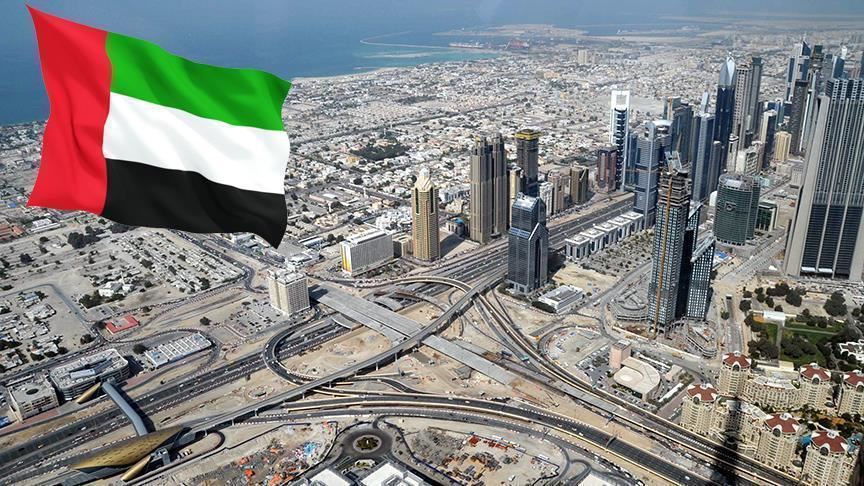UAE-based Black Shield recruits mercenaries in region
Abu Dhabi has long history of hiring mercenaries from poor nations to cement influence in Mideast, African region

ISTANBUL
The United Arab Emirates (UAE) has increasingly sought to increase its influence in the region.
It has vested interests in the Middle East, North Africa and the Horn of Africa, and has not shied away from using mercenaries in its regional endeavors.
With a small population of around 2.7 million, the UAE has not been able to get enough recruits from within its citizenry to take part in external wars in the region. As a result, it was forced to recruit mercenaries to do “dirty” work on its behalf.
Former Palestinian senior security official Mohammed Dahlan has been working with the UAE’s crown prince as a security consultant because of his close ties with private security companies which provide mercenaries.
In 2011, the UAE signed a $529 million contract with Reflex Response Security Consultants managed by infamous Blackwater Worldwide founder Eric Prince, who has legal problems in the US because of his security business.
The UAE has relied on mercenaries in its wars in Libya and Yemen and also deployed them in a number of ports in countries along the Red Sea coast.
Around 450 mercenaries from Latin American countries dressed in UAE military uniforms were deployed in Yemen in 2015 to fight alongside the Saudi-led coalition against Houthi rebels, according to a New York Times report. The report said fighters were trained in UAE deserts before being deployed.
On the other hand, BuzzFeed News reported in 2018 that the UAE hired US mercenaries to kill politicians belonging to the al-Islah party that the UAE considers a “terrorist group” for its alleged affiliation to the Muslim Brotherhood.
The report said the UAE sought to eliminate individuals that have challenged its separatist policies in Yemen; its control over resources of southern Yemen and its military and mercenaries’ presence in the strategic Socotra Island.
Reports from the Sudanese media noted since 2019, Gen. Mohamed Hamdan Dagalo (Hemedti), the deputy head of the Transitional Military Council (TMC) and the commander of the Rapid Support Forces (RSF), sent at least 4,000 soldiers to protect oil installations in Libya to allow warlord Khalifa Haftar’s militia to attack Tripoli -- the seat of the internationally recognized government. Other Sudanese mercenaries from the Janjaweed militia linked to Hemedti are also in Libya’s eastern city of Benghazi supporting Haftar. The UAE is believed to be funding these mercenaries to secure its interests in the country.
Earlier this year, UAE-based Black Shield Security company was accused of deceiving Sudanese youth by offering contracts as security guards in the UAE only to take them for training at a military camp and then forcefully deploy them in Libya and Yemen.
According to Western media reports, the company recruited at least 3,000 Sudanese through Sudanese travel agencies and other intermediaries working for them.
The London-based Arab Organization for Human Rights accused Black Shield of taking advantage of its close relations with the TMC to lure unemployed Sudanese youth with similiar claims. The organization estimates about 3,000 Sudanese signed contracts with the company, some of which contained seals of the UAE embassy in Khartoum.
Families and returned “mercenaries” protested outside the UAE Embassy and the Sudanese Ministry of Foreign Affairs in Khartoum during the past week demanding the UAE apologizes to the Sudanese people for deceiving hundreds of youth.
On the other hand, Sudanese lawyers vowed to take legal action against travel agencies and immigration officers who have been accomplices in deceiving Sudanese youth.
According to some returnees, Black Shield refused to terminate the contracts of those who wished to return to Sudan, hence, keeping the youth as “hostages.”
Meanwhile, the UAE-based company has denied all allegations and maintains its claim as being a private security services company.
However, according to testimonies by Sudanese men who returned from Libya published by Arab media, the company trained young men as security guards to work in the UAE before forcibly sending them to fight alongside Haftar militia in Libya and to support UAE-backed forces of the separatist Southern Transitional Council (STC).
Amid protests in Khartoum accusing the Sudanese government of failing its youth, the Sudanese Ministry of Foreign Affairs said it raised the matter with the UAE. However, it cooled down any possibility of the subject affecting relations between the two countries.
Despite the criticisms, the UAE is likely to continue to recruit fighters from poor countries to work as mercenaries and deploy them in regional conflicts to extend its influence and secure its interests.
Anadolu Agency website contains only a portion of the news stories offered to subscribers in the AA News Broadcasting System (HAS), and in summarized form. Please contact us for subscription options.


